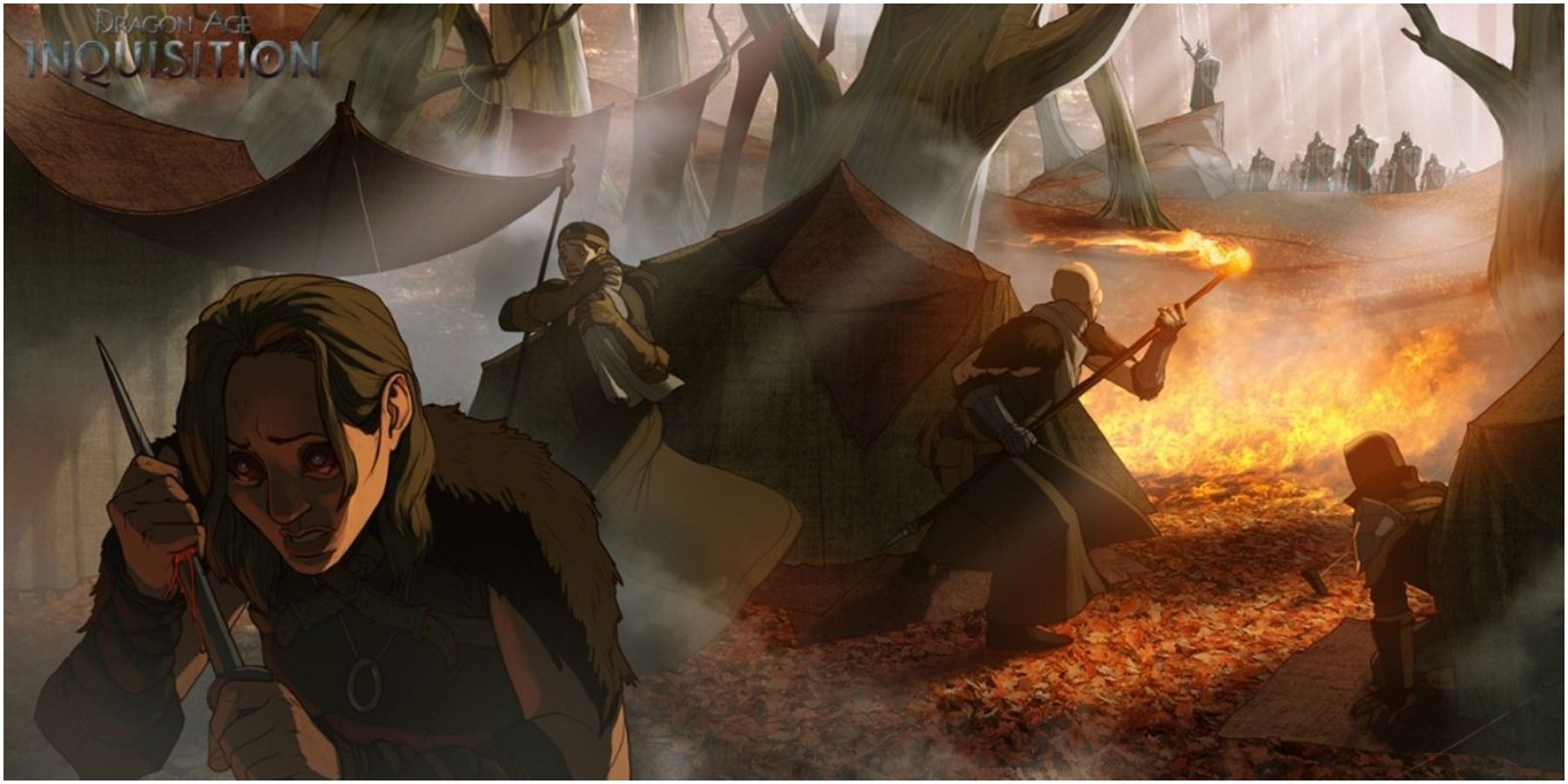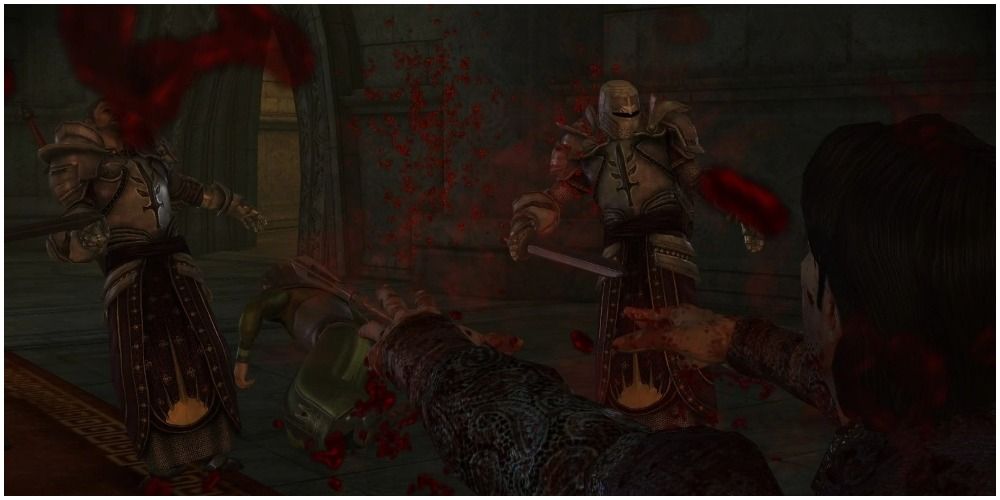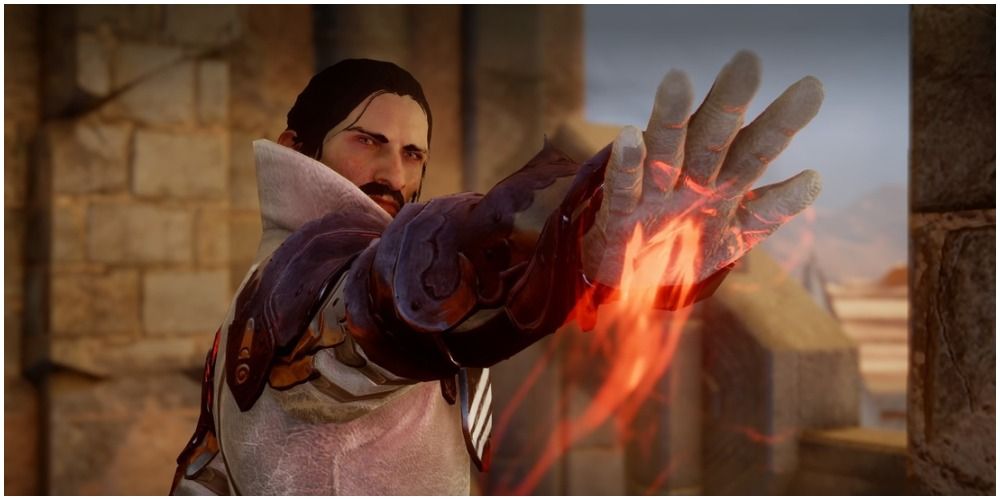Dragon Age's blood magic is a source of a lot of in-world discourse among the characters and factions. The mage specialization is all about using blood to cast magic, be it from sacrifices or their own life force. What makes blood magic so controversial in Dragon Age's Thedas is it's used mostly for mind control, violence, and summoning demons. Not only that, blood mages are known to be more susceptible to manipulation by demons.
The school of magic was actually a specialization gamers could use in Dragon Age: Origins and Dragon Age 2, but BioWare soon decided that blood magic was too controversial for players to specialize in without a lot of additional writing work. There is a lot known and still unknown about this type of magic, and there's a good chance it will be seen a lot in Dragon Age 4.
The History of Blood Magic in Dragon Age
The known history of Thedas says that blood magic was learned from the Old God Dumat, who shared it with a Neromenian dreamer named Thalsian. This was in the Ancient Age, and Thalsian used this knowledge to get others to worship the Old Gods and become king. Another side to history believes blood magic was likely knowledge learned from the ancient elves when Arlathan still stood. Yet there are even more theories around, such as blood magic being taught by powerful old demons.
In Dragon Age: Inquisition, it is revealed that blood magic was known by the Evanuris, meaning it predated Thalsian and the theory of it coming from ancient elves is most likely true. Blood magic would be forever cast it as a sin when Tevinter magisters used it to rule over Thedas, create an empire built on slavery, and break into the Golden City. It was these uses of the blood magic that shaped the viewpoints of many of Thedas' factions, most having a negative view of the practice.
The Power of Dragon Age's Blood Magic
With blood instead of mana used as fuel for magic, there are a lot of abilities and spells that are exclusive to blood mages. The magic allows for spells that can control the minds of others and see into their dreams. It also gives the mage the power to summon demons to the physical world in order to possess a body, or as a form of shade. This is incredibly risky, as demons often disobey or outright kill their summoners unless the mage has a good bribe, is powerful enough to intimidate them, and is clever enough to not be manipulated. Blood magic can also give mages the ability to enter the Fade, which takes countless sacrifices. For lesser sacrifices, blood mages can make holes in the Veil so multiple demons can come into the physical world.
There are conventional uses of blood and magic that sit in a gray area whether they can be considered blood magic. The use of phylacteries by the Chantry to track mages is one such example. Another is the Joining ritual that is used to make Grey Wardens by having them drink darkspawn blood.
How Blood Magic is Treated By Different Factions
The faction most vocal about blood magic is the Orlesian Chantry, which forbids it as something hated by the Maker. It is one of the big reasons that the Circle of Magi exists within the Chantry, so their templars can make sure no one attempts blood magic. Those who disobey the rules of the Chantry and Circle of Magi are called Apostates, and the Chantry has done a lot of work to make people fearful of Apostates using blood magic. In a sort of self-fulfilling prophecy, a lot of Apostates only use blood magic when they are desperate to escape the Chantry and Circle, who may turn them Tranquil.
While Tevinter is considered to be the homeland of blood magic, society officially discourages the specialization. However, blood magic still practiced behind closed doors, with magisters teaching it to their apprentices and every mage knowing at least a little. Those who are outspoken against blood magic are quietly shunned.
Qunari are overall different from the Chantry, but they are similar when it comes to their views on blood magic. Those who are worn with magic in the Qun are called saarebas, and are under constant supervision - often shackled like beasts. If they are suspected of using blood magic, their tongues are cut out, or they are killed along with all those they have communicated with not under supervision.
The Dalish have many clans, and different clans may have different viewpoints on blood magic. So far in the games, what clans have been met disapprove of the practice. A major example of this was with Merrill in Dragon Age 2, who was exiled from her own clan.
Grey Wardens use whatever means necessary to stop the Blight, and that includes blood magic. This is known by the Chantry, and they agree to look the other way as long as the magic is just used against Blight creatures like darkspawn. Lastly, there is Neverra, which is a special case because they specialize in necromancy. Dragon Age writer Mary Kirby has said that necromancy is absolutely blood magic, but no one in Thedas is willing to argue that point with them.
Dragon Age 4 is in development.




